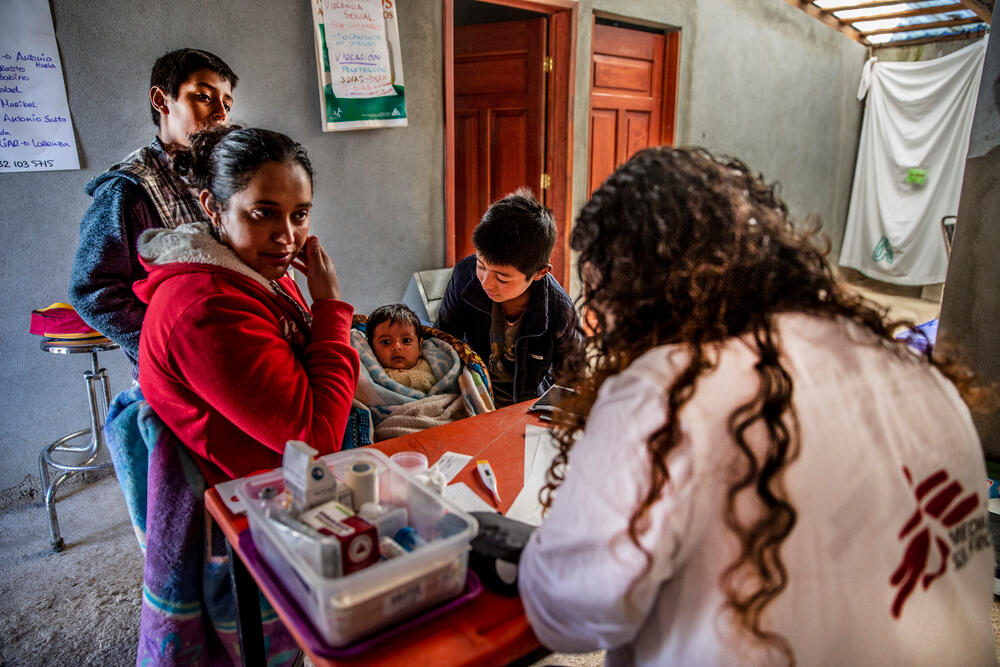Podcast: Why the COVID-19 pandemic is a threat to women and girls
The COVID-19 pandemic is having potentially catastrophic impacts on the health of women and girls around the world.
The response to the pandemic is resulting in women being further cut off from care as sexual and reproductive health service are disrupted – threatening sharp rises in maternal and neonatal deaths.
Listen to our Everyday Emergency podcast for the full story
Prior to COVID-19, women and girls were often denied care outright or faced dangerous delays getting the services they needed. The impacts of misguided policies and barriers to care were especially severe in places with weak or overburdened health systems – including many of the places where MSF works.
Lessons learned from Ebola
A hugely significant lesson learned from the 2014 West Africa Ebola epidemic – the worst-ever outbreak of the disease – was that the biggest danger faced by women and girls was not the Ebola virus itself, but the shutdown of routine health services. This combined with people's fear of visiting healthcare facilities where they could potentially be infected.
Thousands more lives were lost to the closure of maternity, neonatal and family planning services than to the outbreak.
Right now, with COVID-19, we are witnessing the same dynamic on a much larger scale.
Complex challenges
MSF teams at our medical projects around the world say they are already seeing the painful indirect effects of the pandemic on women’s lives.
Based on interviews conducted with staff in Colombia, Honduras, Greece, Uganda, Mozambique, South Africa, Iraq, and Afghanistan, the biggest challenges facing women and girls right now include:
- Closures and cuts to sexual and reproductive health services
- Movement restrictions, including travel bans, lockdowns, and curfews
- Disruptions to the global supply chain of medicines and equipment
- A lack of clear public health information and guidance
On top of the direct medical impact, the economic consequences of the pandemic have also hit poor and marginalised communities the hardest. Refugees, migrant workers, and people working in informal jobs already face extreme difficulties getting access to basic health care, and these challenges are compounded by COVID-19.
A call to action
We know that more women and girls are likely to die due to the secondary impacts of the COVID-19 pandemic than due to the disease itself. Governments, health authorities, and health providers need to act now to eliminate barriers to care and save as many lives as possible.
- Movement restrictions must be adapted to allow for women to access all essential health services
- Healthcare services must continue to offer contraception, safe abortion and treatment for sexual violence
- Communities worldwide need clear guidance to prevent misinformation and fear
- Supply chain disruptions must be fixed to allow access to contraceptive and other key medications
The lives and health of women and girls must be prioritised, during COVID-19 and always.

